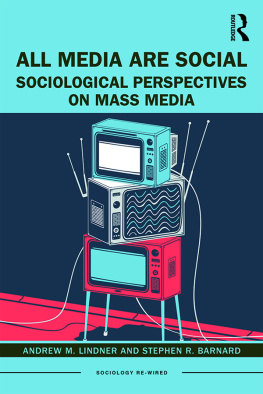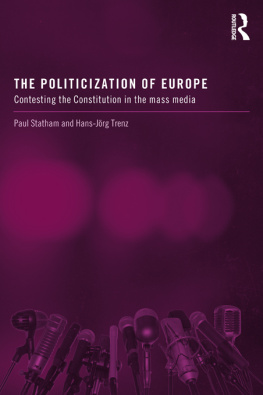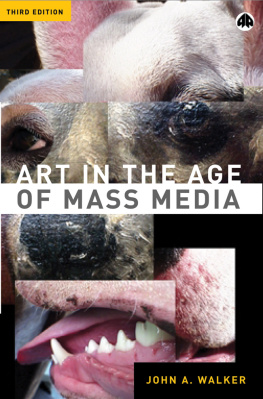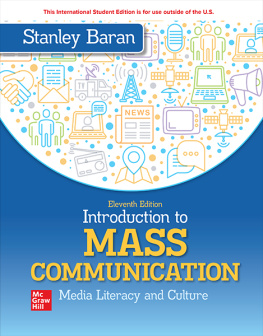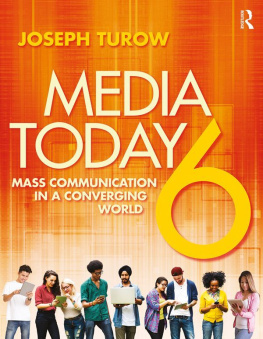THE MEDIA AND THE MAKING OF HISTORY
For Franoise, Tom, Ana, Joe, Alice and Marianne
First published 2004 by Ashgate Publishing
Published 2016 by Routledge
2 Park Square, Milton Park, Abingdon, Oxon OX14 4RN
711 Third Avenue, New York, NY 10017, USA
Routledge is an imprint of the Taylor & Francis Group, an informa business
Copyright 2004 John Theobald
John Theobald has asserted his right under the Copyright, Designs and Patents Act, 1988, to be identified as the author of this work.
All rights reserved. No part of this book may be reprinted or reproduced or utilised in any form or by any electronic, mechanical, or other means, now known or hereafter invented, including photocopying and recording, or in any information storage or retrieval system, without permission in writing from the publishers.
Notice:
Product or corporate names may be trademarks or registered trademarks, and are used only for identification and explanation without intent to infringe.
British Library Cataloguing in Publication Data
Theobald, John, 1946-
The media and the making of history
1.Mass media and history 2.Literature and history 3.Historiography
I.Title
907.2
Library of Congress Cataloging-in-Publication Data
Theobald, John, 1946-
The media and the making of history / John Theobald.
p. cm.
Includes bibliographical references and index.
1. Mass media--Political aspects. 2. World politics--20th century. I. Title.
P95.8.T49 2004
302.23--dc22
2003057015
ISBN 9780754638223 (hbk)
Contents
People who make history, or make the news, are in everyday language those who have a transforming impact by their actions on a flow of events of public significance or interest.
They may, seen in the narrower terms of the historians or journalists craft, also be the recorders of events, those who produce or edit texts which bring to their readers or audiences a meaningful account of the past or present.
It is not commonly perceived or thought through that the first category, seen as people of action, might be less influential in determining the course of past and future events, as the public and decision makers come to understand them, than the second the scribes. The authors and purveyors of the versions of events which become identified with what happened, and are thus subsequently reacted to with further actions by people of action, are habitually positioned on the sidelines of reality.
This book sets out to cross-examine two linked hypotheses. First, that the all-important battle for reality, the established truth about what is going on, and how citizens and decision makers should interpret events and situations, is crucially a discursive one, to a much greater extent than normally assumed in the hands of story-tellers rather than actors. Second, that discourses which gain hegemonic status do not arrive at this position because they are full, accurate and unbiased, but because they function in the political and economic interests of power elites. In this perspective, corrupted story-tellers, that is, journalists and high-profile popular historians, whose craft in Western society has (with few exceptions) long been swallowed into large, and in some cases globally influential media enterprises, move from the periphery to an indispensable position of close enmeshment with the centres of power.
In positing that the role of the media and their discourses in the making of history (in both senses) has been seriously underestimated, this book does not wish to overreact by inflating that role in reductionist fashion at the unreasonable expense of other key factors. Rather it wishes to advance its hypotheses, examine their concepts, and test them in a series of exemplary case studies.
Within the conclusions to be drawn may be sought some answers to key cultural questions about why the age of mass media and mass information, which were supposed to have led to greatly enhanced public knowledge and awareness, has also been the age of the most extreme and widespread barbarism that humankind has committed. Indeed, many of the worst cases have emanated from, or happened under the scrutiny of the most media-saturated societies.
From the conclusions may, I hope, be drawn stimuli for envisaging a future in which such a diabolical synchronicity will not continue to be produced.
Thanks unlimited to the close family Franoise, Tom, Ana, Joe, Alice and Marianne.
Thanks to many friends and colleagues. My preoccupation with the themes of this book goes back for decades, thus dozens too many to list, dating from periods in Vienna, Leicester and Southampton will recognise their association with parts of it.
Thanks for comment and support in the latter months and weeks to David Berry, Patrick Burke, David Cromwell, Patrick Stevenson, John Sandford and Priya Varghese.
Thanks to the students who really showed interest.
Thanks to institutions particularly Southampton Institute and the AHRB for indispensable time and space.
Thanks to Caroline Wintersgill and colleagues at Ashgate for helping the project through to publication.
I have taken from each, including the numerous unnamed, according to their patience, resources and critical insight, and I thank each according to their generosity, encouragement and good humour.
Chapter 1
My words fly up, my thoughts remain below:
Words without thoughts never to heaven go.
Hamlet Act 3, Scene 3
Moments of Untruth
The words of King Claudius, reflecting on the fateful consequences of the separation between words and meaning, provide an apt starting point for a critique of the role of mass media discourse in key historical events and processes of European and Western history since the outset of the age of mass communication the central project of this book. Shakespeares couplet captures an individual moment of what George Steiner expands into the broader break of the covenant between word and world (Steiner 1989:93). This defines a process of cultural disintegration in the course of which words without thoughts multiply into an immense, ever growing media tapestry of what I am calling here moments of untruth.
To those entering the discourse based vision of the historical process in the media age, which is elaborated here, is offered a disturbing contribution to the cultural understanding of what Eric Hobsbawm has called the most murderous century of which we have record (Hobsbawm 1994: 13). In this perspective, media discourse, the way in which an event or issue is presented to masses of citizens on the newspaper or web page, and on radio or television, moves from the footnotes to become a central object of analysis. The story/lhistoire/die Geschichte, with all the connotations of these words, becomes the pivotal point and door of perception (we should recall here that in both French and German story and history are expressed by the same word, and that in all three languages, the expression telling stories can mean telling lies). The frequently unnoticed and unquestioned historians and journalists task might be habitually construed in the public mind as a functional process of searching out and portraying as accurate and true a depiction of events as possible, and showing how they fit in with other salient events in a given time frame. The project here is to highlight


